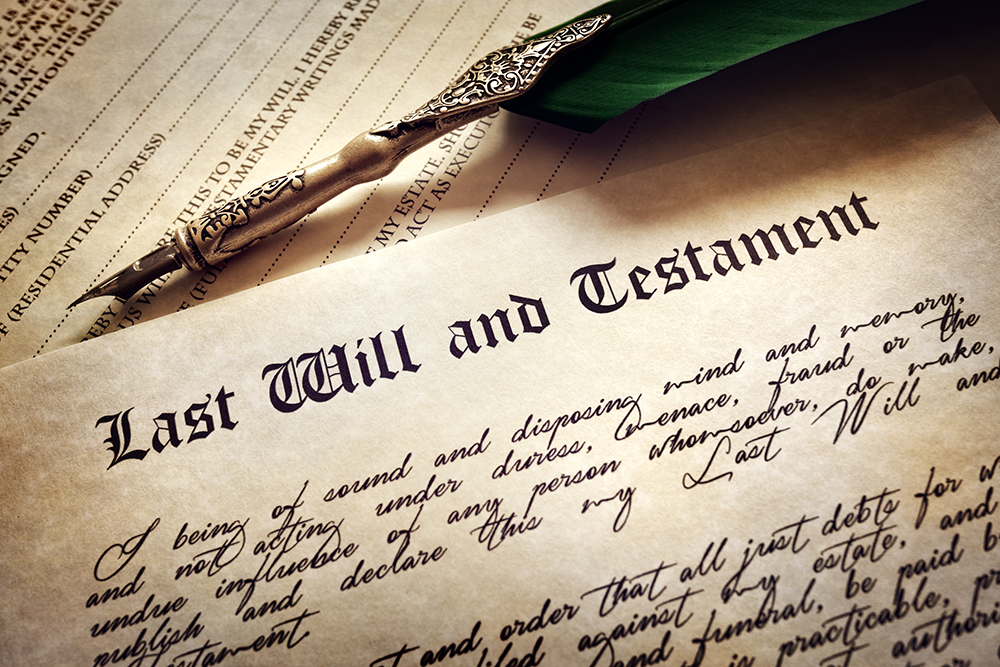Where there’s a Will, there’s a way

Where there’s a Will, there’s a way, or so the saying goes. But when 40% of adults don’t have a Will and the number of cases where Wills are contested climbing, the law around Wills and what happens to your estate when you die can be confusing and easier to ignore. The team here at Bridge Law have sat down to answer your questions.
What is a Will?
A Will is a legal document in which a person details how they wish their estate (their property, money and possessions) to be distributed after they die. They can be short and simple, or longer and complex, but they need to be properly executed to avoid any loopholes for unscrupulous people to take advantage of. Although the Brisbane Supreme Court in Australia has ruled that an unsent text can count as a Will because the wording was clearly intended to be one, in England and Wales Wills still have to be signed and witnessed by two people.
Can I leave my house to my dog in my Will?
The short answer is no – any beneficiaries of a Will have to be human – but you can make sure that any beloved pets are well looked after by setting up a Trust for them. Unlike many other countries, there is no forced heirship which makes you leave a certain proportion to certain people; in Irish law, the surviving spouse is entitled to at least one-third of the estate. In comparison, English and Welsh law allows you much more freedom. You can cut people out of your Will entirely, skip children in favour of grandchildren, and leave gifts to your favourite charities, but you still can’t leave everything to Mr Tibbles the cat.
What happens if I don’t make a Will?
If you die intestate (without a Will), your estate is divided up according to a set of strict rules, whether or not you wanted your money to go elsewhere. The rules don’t allow for donations to charities or friends, or gifts of any of your possessions.
Unmarried couples or partners not in a civil partnership cannot inherit without a Will, even if you’ve lived together for years. Contrary to what a lot of people think, there’s no such thing as a Common Law Marriage, so if you’re not legally coupled up you need to make a Will!
Why do so many people not make Wills?
Planning for after you die is not something that people look forward to so unless there’s an urgent need, making a Will is easily put off.
The law that currently governs Wills in England and Wales is old-fashioned and can be confusing without an expert to help. It comes from the Wills Act 1837, and the law determining whether someone has the capacity to make a Will (whether they’re of ‘sound mind’) was set out in an 1870 case. This law has been updated and reworked since the nineteenth century, but there hasn’t been a full overhaul.
The Law Commission has called for something to change to make the process of Will-making more accessible. There is a public consultation open until 10 November, hoping to find out what the main barriers to making a Will are, and what changes you’d like to see.
I’ve been cut out of a Will, what do I do?
If you’ve been written out of a Will, then the Inheritance (Provision for Family and Dependants) Act 1975 may apply to you. Under the Act you may be able to make a claim for reasonable financial provision – children (including step-children), spouses, former spouses and anyone supported by the deceased before they died can be entitled to a cut of the inheritance. In 2015, Heather Ilott was awarded £164,000 after her mother cut her out of her Will for running off with a boyfriend when she was 17 and left Heather struggling for money.
This Act is not the same as forced heirship, but can help to support people who would reasonably have required support from the deceased. For more advice get in touch with the office.
I think someone I know was forced to change their Will, what do I do?
If you think someone vulnerable was coerced into changing their Will, or they were not able to understand what a change would mean (if they lacked the mental capacity to do so, or if English is not their first language) then get in touch with Bridge Law for advice.
What should I do next?
If you have any queries about making a Will, updating a Will, or if there’s a problem with how a Will is being carried out, get in touch with our team in the office. With our reasonable rates, personal service, and the peace of mind it’s sure to bring, why wait any longer? Give us a ring on 0161 427 0084 or pop into the office in Marple Bridge.
